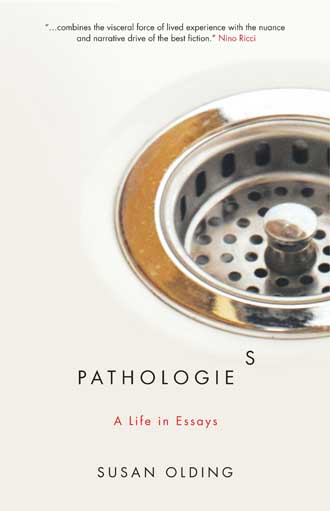
The first book of my January Book Project is Pathologies by Susan Olding. Pathologies looks something like a memoir, something like a collection of literary essays. As essays, they are connected and follow a roughly chronological sequence. Although each could stand on its own, taken together, they produce something like an autobiography.
In the first piece, titled “Pathology”, we meet Olding’s father, an alcoholic medical examiner. As he does with dead bodies, so she does with her family. We look over her shoulder as she pursues “the scientific study of the way things go wrong.” She frames her collection with a meditation upon another pathologist of sorts, the Romantic poet, John Keats, who apprenticed with an apothecary, then enrolled for a year of study at Guy’s Hospital in London where he served as dresser to the incompetent surgeon, William Lucas. At that time, pathology (and medical education using cadavers) was taboo, producing a booming trade amongst body-snatchers (see my post on mort safes). The taboo sprang from religious concerns about maintaining bodies whole for a literal resurrection of the dead at judgment day. But on completing an autopsy, a modern pathologist doesn’t concern himself with restoring the body to its original state. Instead, he dumps all the organs into the body cavity and sews it shut with a thick black thread. There is a sense in which Olding does the same thing in her writing. A once-coherent narrative body is carved into fifteen discrete hunks, each hunk is examined for evidence of what may have gone wrong, then they’re stitched together again, much as a corpse might be prepared for a funeral.
We examine a child in school in the seventies, socially awkward, trying to fit in, discovering boys, discovering cigarettes. We examine a young woman teaching more socially awkward children, forced by male staff to organize the cheerleading squad, forced to participate in a convention that marginalizes young women. We examine a failed marriage, a second and successful marriage, medical issues, an inability to conceive, an adoption in China, agony over personal ethics, a child with behavioural issues.
At the risk of straining a metaphor, Olding stitches together these bits of the body with the dark thread of writing (i.e. the subject of writing). In “Mama’s Voices”, Olding goes to a writing conference and leaves her daughter behind for ten days. During the conference, she shares a piece about her daughter and adoption, and she is taken aback by the response. Universally, her colleagues think she should bury the piece; it’s unethical; it’s exploitative. I’m reminded of a phrase I recently stumbled upon: Gilles Deleuze credits Michel Foucault with revealing “the indignity of speaking for others” (cited by Craig Owens in “The Discourse of Others” in The Anti-Aesthetic: Essays on Postmodern Culture).
On its face, Olding frets about falling into the caricature of the middle-class barren white woman who exercises a kind of knee-jerk colonialism by filling the hollow spaces of her life with a trip to an orphanage in China. But I personally am under no obligation to read the collection on its face. I can read it both/and. It is both about a woman who adopts an infant daughter while agonizing about the ethics of her decision, and about a woman discovering what it means to be a creative force in the world. She sets her father against the example of Keats. What does it mean that these two men who both spent time in the company of corpses should follow such divergent paths, one as a modestly anti-social alcoholic, the other as one of the most stirring voices writing in English at the beginning of the 19th century? What does it mean that a woman who can produce nothing from herself can nevertheless be a creative force in the wider world? And what does it mean that a child, abandoned and neglected, can become the object of an intense love?
It is precisely these and analogous questions that writers need to be asking nowadays. Drawing from the same collection quoted above, consider these words from Frederic Jameson in “Postmodernism and Consumer Society”:
There is another sense in which the writers and artists of the present day will no longer be able to invent new styles and worlds—they’ve already been invented; only a limited number of combinations are possible; the most unique ones have been thought of already. So the weight of the whole modernist aesthetic tradition—now dead—also “weighs like a nightmare on the brains of the living,” as Marx said in another context.
Maybe there is a sense in which our culture is barren, but, reading Olding as a kind of allegory, that doesn’t mean our creative powers have no legitimacy. Although we may not be able to draw from ourselves, we may nevertheless be able to adopt and to nurture.